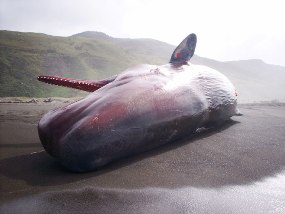‘I have known uncertainty: a state unknown to the Greeks.’ –Jorge Luis Borges
A [2007] study analyzed the viewing patterns of men and women looking at sexual photographs, and the result was not what one typically might expect.
Researchers hypothesized women would look at faces and men at genitals, but, surprisingly, they found men are more likely than women to first look at a woman’s face before other parts of the body, and women focused longer on photographs of men performing sexual acts with women than did the males. These types of results could play a key role in helping researchers to understand human sexual desires and its ultimate effect on public health.
{ Medical News Today | Continue reading }
Previous study, published in Hormones and Behavior magazine concluded that sexual stimuli outlines gender differences, particularly for brain activity of men and women. Presumably women who took hormonal pills were more often focused on genitals and those who took no pills paid their attention to the context of the picture. Although it is known that men would more readily respond to visual stimulation, their concentration is initially less sexually oriented.
‘A happy marriage is the union of two good forgivers.’ –Robert Quillen
When you say “I’m not going to participate in your art because I think it’s obscene” on the one hand you’re slapping someone in the face — what you think of as beautiful, I think should not be seen but, to be honest, on the other hand you’re often validating them. If people in the main-stream hadn’t freaked out about Robert Maplethorpe you’d probably have no idea who he was, unless you were prone to reading the fine print on the backs of Patti Smith albums. So complaints about art help define it. In part you know if you should like it because of who hates it. And it’s also free advertising.
{ Kyle Cassidy | Continue reading | Thanks Richard! }
I paid my way. I never borrowed a shilling in my life. Can you feel that? I owe nothing.

Natural lightning is caused by the build-up of electric charge in thunderstorms. Florida, lying out as a prong between the Gulf of Mexico and the Atlantic Ocean, is especially prone to these. Sea breezes from the two warm bodies of water head inland and collide over the centre of the state. The warm air rushes upwards and then condenses into rain, ice, hail and something called graupel (a mixture of all three). As those particles collide and rub against each other, positive and negative electrical charges build up and separate in the clouds. Lightning occurs when those charges become so great that the air breaks down and conducts electricity between the two – mostly from cloud to cloud, but also down to the ground. “Triggered” lightning works by firing a rocket into the storm at around this moment. A copper wire attached to the rocket offers the charge an easy route to the ground and, about 70 per cent of the time, it takes it. (…)
The resulting wave of research, much of it funded by Nasa, laid the basis for current lightning safety. Many of lightning’s physical characteristics – its speed, temperature and current – were ascertained. Triggered lightning was used to test aircraft parts, runways, houses and power lines, and detection systems for lightning strikes were built across the world. Lightning still kills about 25,000 people a year (overwhelmingly in the developing world) and causes $1bn of damage annually in the US, but in terms of protection at least, a truce was declared.
In terms of how we understand it, however, lightning has only got stranger. The past 20 years have seen a series of confounding discoveries. In 1989, a group of scientists from the University of Minnesota were testing a video camera when they accidentally recorded an odd blossom of lightning rising out of the top of a storm. Over the next decade, other unexplained luminous phenomena (dubbed “Red Sprites”, “Blue Jets” and “Elves”) were also identified, billowing up from thunderstorms in columns and rings as high as 100km above Earth. Complicating matters further, in 2001 lightning was found to emit radiation. Not in odd or meagre quantities either. At every single stagger and step, lightning channels are now known to generate enough X-rays for a chest X-ray, despite having no obvious physical means to do so. Sometimes they also manage to blast off huge quantities of gamma rays, more often associated with collapsing stars – a process that may pose an as-yet poorly understood risk to aircraft.
image { Pierre Huyghe, No Ghost, Just a Shell, 2001 | More: video }
She’s not going out with the sweat rolling off her back, is she? Her fancy, flashing. The bright air.
Yawns help cool the brain?
We don’t yawn when we are out in the sun, when our body skin temperature is probably higher than the core temperature. We may inhale higher temperature air and that doesn’t seem to be required to cool the brain. So we don’t yawn?
But does the air we breathe normally reach near the brain or anywhere near it to cool some parts of it? No it is not air that reaches the brain, but cool blood.
Prefer an ounce of opium. Celestials. Rank heresy for them.

There’s a puzzle at the heart of our economy that has troubled economists for decades. The question is this: why do people work hard in environments where they are poorly monitored and paid a fixed wage, rather than a performance-related one. Surely any rational worker would do the bare minimum to get by.
One line of thinking focuses on the relationship between the workers and their employer, which can be influenced by contracts set out in writing and by personal relationships between workers and their managers.
That suggests that one way for an employer to improve productivity would be to perfect its employment contracts.
Another line of thinking is that peer pressure plays an important role. The people around you may affect the way you work. For example, good workers, leading by example, might raise the quality of everybody’s work. On the other hand, bad apples may make the good ones rotten.
But working out which of these effects wins out is hard. Peer pressure is hard to quantify and the various results in this area are somewhat contradictory, suggesting that they may depend on the environment too.
But a new tool is emerging that can help, according to John Horton at Harvard University who says the recent development of online marketplaces, in which people can buy and sell services over the web, provides a fascinating laboratory in which to test these ideas. (…)
Horton’s work raises many questions, not least because it contradicts other work suggesting that it is possible to improve poor workers’ output by pairing them with good workers. By contrast, Horton found that “the bad apples ruined the good apples, and the good apples did nothing for the bad.”
This kind of work fascinates psychologists, economists and managers because it raises the possibility that productivity in the workplace can be manipulated by clever management rather than by expensive financial incentives.
photo { Cory Kennedy and friends }
The sun never sets. For the moment, no.
Tracking your internal clock may be as easy as plucking a few strands of hair, according to a new study.
The research found that hair follicles hold a record of the gene activity that influences when we wake and when we sleep. The results could be used to diagnose and study sleep disorders and conditions like jet lag.
Whether you’re a night owl or a morning lark, your sleep-wake cycle is controlled in large part by genes called clock genes. These genes vary their activity throughout the day, setting the internal clock that drives our circadian rhythms.
The first human clock gene was discovered almost 10 years ago, but isolating the genes efficiently enough to study sleep-wake cycles in real time has proved difficult. When the genes are active, they transcribe their DNA into RNA, the first step in producing various proteins that essentially carry out a gene’s instructions and, in this case, influence circadian rhythms. The RNA can be found in cells all over the body, from white blood cells to the lining of the mouth, but techniques for extracting it from these cells proved unreliable.
Same notice on the door. Sermon by the very reverend John Conmee S. J. on saint Peter Claver.
I wrote a few days ago about the Intel anti-trust settlement with the Federal Trade Commission. Those words stand unchanged but some readers have asked for more so I have given the deal further thought and have what might be a better context in which to place it — Too Big to Fail. This isn’t “too big to fail” in the Bush/Obama big bank context in which failing and stupid institutions are saved at any cost to the public. Intel, in contrast, literally is too big to fail, at least right now.
Everything about the Intel/FTC settlement screams of one thing — Microsoft. Redmond’s multi-year nightmare with the FTC, DoJ, and the attorneys-general of several dozen states wasn’t lost on Intel, which is a more rational company and doesn’t want a Microsoft-like anti-trust experience. Both companies are guilty and both are paying something for that guilt, but Intel clearly wants to avoid the decade of pain and distraction suffered by Microsoft.
For the record, Intel admitted no wrong-doing in the settlement. But they also promised to specifically change their behavior.
What this settlement (and the previous one with AMD) does for Intel is clear the decks for future action. Now Intel can attack new market segments and be aggressive in existing market segments within the rules of the FTC deal.Microsoft was paralyzed with the FTC breathing down its neck. Intel is not paralyzed.
Roughly $2 billion in payouts and Intel is a free bird — a rich free bird at that — having proved that crime does pay.
Then she gets you on her wavelength and she lets the river answer

Humans are dumping more plastic than ever, but not all of it is accumulating in the garbage patches of the Atlantic as expected, scientists reported.
Of the millions of metric tons of plastic produced annually, an enormous proportion ends up as tiny debris in the open ocean. The currents loosely gather it together in vast, swirling ‘garbage patches’ near the surface.
But the amount of floating plastic accumulating in the Atlantic Ocean has remained curiously static over the last two decades, in spite of the fact that plastic waste by humans has increased significantly over the same timeframe, according to a new study published in the journal Science.
“Surprisingly, over the 22-year period of the study (1986-2008) we did not observe an increase in the amount of plastic floating in the western Atlantic in the region where it is most highly concentrated,” said Kara Lavender Law of the Sea Education Association and lead author of the study.
Plastic debris has been accumulating in the world’s oceans for decades, but until recently we have had only a peripheral understanding of its extent.
A major pollutant, plastics have far reaching environmental impacts in the ocean, including entanglement of marine fauna, particle ingestion by seabirds and other organisms, dispersal of invasive species to non-native waters and the transport of organic contaminants.
The researchers discovered that while highest concentrations of plastic debris occurred in an area where ocean-surface currents converge - the North Atlantic Subtropical Gyre - over the last two decades there has not been a substantial increase in the overall amount. (…)
Marine scientist Richard Thompson of the University of Plymouth warns that “while the study clearly shows no consistent trend in the abundance of debris in the North Atlantic subtropical Gyre we should not extrapolate this to other regions. Over the same time period there are reports of plastic accumulating in remote regions including the Antarctic and in substantial quantities in the deep sea.”
photo { 3-ton whale died in Malaysia after ingesting a plastic bag, a rope and a bottle cap. }
Like to see them sitting round in a ring with blub lips, entranced, listening. Still life. Lap it up like milk, I suppose.
We are about to get a very different kind of Internet, one replete with huge potential and danger. The spread of cloud computing will allow much greater personalisation and mobility, constant real time connection and easier collaboration. Cloud computing will give rise to a cloud culture. (…)
In the world of cloud computing our data — emails, documents, pictures, songs — would be stored remotely in a digital cloud hanging above us, always there for us to access from any device we like: computer, television, games console, handheld and mobile, embedded in our kitchen table, bathroom mirror or car dashboard. We should be able to access our data from anywhere, thanks to always on broadband and draw down as much or as little as and when we need. Instead of installing software on our computer we would pay for it only when we needed it.
The most familiar early version of a cloud based service is web mail — Googlemail and hotmail — in which email messages are stored on remote servers which can be accessed from anywhere. Google also provides ways for people to store and then share documents and spreadsheets, so many people can access the same document. Facebook and Twitter are like vast clouds of personal information held in a cloud. Wikipedia is a cloud of self-managed, user generated information. Open source software platforms like Drupal are software clouds which coders can draw down from and add to.
Sharing our programmes and data makes a lot of sense, at least in theory. Pooling storage and software with others should lower the cost. Cloud computing would turn computing power into just another utility that we would access much as we turn on a tap for water.
As computing becomes a utility it will power many more devices, many of them with no user interface, more of them mobile and handheld. The cloud should also encourage collaboration. Different people, using different devices should be able to access the same documents and resources more easily. Work on shared projects will become easier, especially as collaboration software and web video conferencing becomes easier to use. This should allow far more of what Hal Varian, Google’s chief economist calls “combinatorial innovation” as developers mash-up data from different sources, as many people are doing already with Google maps. It is more sensible not to think of the cloud but clouds taking different shapes and forms.
{ Charles Leadbeater, Cloud Culture: The promise and the threat | Edge | Continue reading }
Every day, the same, again
Las Vegas man sues attorney for $38 quadrillion.
Highway jam in China enters its 9th day, spans 100km. [Thanks Michael] More: 10th day.
Man solves Rubik’s cube skydiving in inflatable boat.
1-in-4 grown men travel with a stuffed animal.
The Department of Justice is seeking to hire linguists fluent in Ebonics to help monitor, translate, and transcribe the secretly recorded conversations of subjects of narcotics investigations, according to federal records. Ebonics is listed as a “common language” spoken solely in the United States.
Child abuse declines nationally in spite of economic deterioration.
Venezuela, more deadly than Iraq, wonders why.
Neuroscience of Murder and Aggression.
Do new neurons go through a critical period and then retire, never to be used again?
Ketamine, a general anesthetic usually administered to children and pets, is also highly effective in low doses as an anti-depressant, according a recent study. “It’s like a magic drug - one dose can work rapidly and last for seven to 10 days,” said Ronald Duman, senior author of the study.
The Mystery of the Tainted Cocaine. What’s a drug used to deworm livestock—a drug that can obliterate your immune system—doing in your cocaine? Nobody knows.
Optical illusions fool us because they violate our assumptions about what we see. Cognitive Inferences and Optical Illusions.
 Chances of E.T.s Increase: Remote Solar System Found, a Bit Like Ours. Related: Why have UFOs changed speed over the years?
Chances of E.T.s Increase: Remote Solar System Found, a Bit Like Ours. Related: Why have UFOs changed speed over the years?
Solar system older than estimated.
The Moon is shrinking and crinkling, say astronomers. Related: Photo of the Earth and Moon taken from 114 million miles away.
Tetsuro Matsuzawa has spent 30 years studying our closest primate relative to better understand the human mind. Related: Observations of chimpanzees and dolphins strengthen the notion that humanlike intelligence may not be uniquely human.
‘Zombie ants’ controlled by parasitic fungus for 48m years.
Anticipation of pain makes it hurt more, even days later.
Unusual Foreign Bodies Removed From Patients.
Who are you calling ‘hipster’? Consumers defy labels and stereotypes.
Rembrandt Aging and Sickness. 8 self portraits were analyzed and assessed medically and artistically with modern techniques such as graphic software. An objective and subjective description of the artist’s aging physiognomy was performed and published.
Infidelity Has Different Meanings In Different Cultures.
Patterns of Individual Shopping Behavior.
Why do consumers disclose sensitive information to shady-looking websites?
Psychological research on Twitter reveals who tweets, how much, what they talk about and why.
The Future of Internet Search.
What’s It Like to Be a Tourist in North Korea?
Mozambique is being ravaged by an epidemic of spirit possession.
Americans, plugged in and on the move, are confiding in their pets, their computers, and their spouses. What they need is to rediscover the value of friendship. The poet Kenneth Koch laid out the problem in verse: You want a social life, with friends. A passionate love life and as well To work hard every day. What’s true Is of these three you may have two.
If you think that your favorite coffee shop is a great gathering place for discussion, you should have been around in the Ottoman Empire starting in the 1550s. Patrons engaged in gambling, taking drugs, meeting with “young beautiful boys,” as well as performing or watching entertainments such as puppet theatres, storytellers, and musical and dance performances.
How to cook a bolognese sauce.
What’s the origin of the suit designations on playing cards?
 David McCandless turns complex data sets (like worldwide military spending, media buzz, Facebook status updates) into beautiful, simple diagrams that tease out unseen patterns and connections. [TED video]
David McCandless turns complex data sets (like worldwide military spending, media buzz, Facebook status updates) into beautiful, simple diagrams that tease out unseen patterns and connections. [TED video]
How much is left? The limits of Earth’s resources.
Janelle Ward studies the last statements from those on death row.
Every minute, diarrhea kills three more children.
Black and White People Furniture - Red House Commercial. [Thanks Glenn]
latfh.com [Thanks Tim]
Then we’ll spit on Ronnie Arnold and flip him the bird

Whether it’s a company like BP apologising for causing environmental catastrophe or a political leader expressing regret for her country’s prior misdemeanours, it seems there’s barely a day goes by without the media watching hawkishly to find out just how the contrite words will be delivered and what effect they’ll have on the aggrieved.
Surprisingly, psychology has, until now, paid little attention to what makes for an effective apology. (…)
The three apology types or components are: compensation (e.g. I’m sorry I broke your window, I’ll pay to have it repaired); empathy (e.g. I’m sorry I slept with your best friend, you must feel like you can’t trust either of us ever again); and acknowledgement of violated rules/norms (e.g. I’m sorry I advised the CIA how to torture people, I’ve broken our profession’s pledge to do no harm).
Fehr and Gelfand’s hypothesis was that the effectiveness of these different styles of apology depends on how the aggrieved person sees themselves (known as ’self-construal’ in the psychological jargon). To test this, the researchers measured the way that 175 undergrad students see themselves and then had them rate different forms of apology. (…)
The researchers found that a focus on compensation was most appreciated by people who are more individualistic (e.g. those who agree with statements like ‘I have a strong need to know how I stand in comparison to my classmates or coworkers’); that empathy-based apologies are judged more effective by people who see themselves in terms of their relations with others (e.g. they agree with statements like ‘Caring deeply about another person such as a close friend is very important to me’); and finally, that the rule violation kind of apology was deemed most effective by people who see themselves as part of a larger group or collective (e.g. they agree with ‘I feel great pride when my team or work group does well’ and similar statements). These patterns held regardless of the severity of the misdemeanour.
photo { Borisovini }
I’ll get a dollar from my mamas purse and buy that skull and crossbones ring

The quality and quantity of individuals’ social relationships has been linked not only to mental health but also to both morbidity and mortality. (…)
Humans are naturally social. Yet, the modern way of life in industrialized countries is greatly reducing the quantity and quality of social relationships. Many people in these countries no longer live in extended families or even near each other. Instead, they often live on the other side of the country or even across the world from their relatives. Many also delay getting married and having children. Likewise, more and more people of all ages in developed countries are living alone, and loneliness is becoming increasingly common.
In the UK, according to a recent survey by the Mental Health Foundation, 10% of people often feel lonely, a third have a close friend or relative who they think is very lonely, and half think that people are getting lonelier in general. Similarly, across the Atlantic, over the past two decades there has been a three-fold increase in the number of Americans who say they have no close confidants. There is reason to believe that people are becoming more socially isolated.
Some experts think that social isolation is bad for human health. They point to a 1988 review of five prospective studies that showed that people with fewer social relationships die earlier on average than those with more social relationships. (…)
The researchers identified 148 prospective studies that provided data on individuals’ mortality as a function of social relationships and extracted an “effect size” from each study. (…)
The findings indicate that the influence of social relationships on the risk of death are comparable with well-established risk factors for mortality such as smoking and alcohol consumption and exceed the influence of other risk factors such as physical inactivity and obesity.
photo { Paige de Ponte }
Interviewer: Mr. Murphy, what attracts you to the leisure industry? Spud: In a word: pleasure. It’s like, my pleasure in other people’s leisure.
People donate their blood to strangers, travel on humanitarian missions to places such as Haiti and the Sudan, and risk their lives to fight injustice elsewhere. And New Yorkers have grown accustomed to reading about subway heroes – brave souls who leap onto the tracks to rescue fallen commuters and then often slip away, uncomfortable with attention or credit.
As a psychologist, I am fascinated by the origin and consequences of such kindness. Some of our moral sentiments and moral motivations are the product of biological evolution. This accounts for why we are often kind to our own flesh and blood – those who share our genes. It also can explain our moral attachments to those we see as members of our immediate tribe.
There is an adaptive logic to being kind to those with whom we continually interact; we scratch their backs, they scratch ours. But there is no Darwinian payoff to sacrificing our resources to anonymous strangers, particularly those in faraway lands.
The explanation for our expanded morality comes from intelligence, imagination, and culture. One powerful force is the use of language to tell stories. These can motivate us to think of distant people as if they were friends and family.
I can get Lady Fingers to come

Lancey Howard: Gets down to what it’s all about, doesn’t it? Making the wrong move at the right time.
Cincinnati Kid: Is that what it’s all about?
Lancey Howard: Like life, I guess.
First appearance deceives many

Housing will eventually recover from its great swoon. But many real estate experts now believe that home ownership will never again yield rewards like those enjoyed in the second half of the 20th century, when houses not only provided shelter but also a plump nest egg.
The wealth generated by housing in those decades, particularly on the coasts, did more than assure the owners a comfortable retirement. It powered the economy, paying for the education of children and grandchildren, keeping the cruise ships and golf courses full and the restaurants humming.
More than likely, that era is gone for good. (…) “People shouldn’t look at a home as a way to make money because it won’t,” Mr. Baker said.
If the long term is grim, the short term is grimmer. Housing experts are bracing themselves for Tuesday, when the sales figures for July will be released. The data is expected to show a drop of as much as 20 percent from last year.
The supply of homes sitting on the market might rise to as much as 12 months, about twice the level of a healthy market. That would push down prices as all those sellers compete to secure a buyer, adding to a slide that has already chopped off as much as 30 percent in home values.
{ NY Times | Continue reading | Read more: Housing: No Longer A Sure-Fire Wealth Builder | Barry Ritoltz }
photo { Helmut Newton }
Scarlet gave him twenty seven stitches in his head

Do you sleep like a baby? You may have your thalamus to thank, according to research that suggests this brain region helps people sleep through bumps in the night.
To discover why some people can sleep through noise while others awake at the faintest disruption, Jeffrey Ellenbogen and colleagues at Harvard Medical School used electrodes to monitor the brain activity of 12 people while they slept in a pitch-black, soundproof room. They then repeated the experiment, this time playing 14 sounds, such as a toilet flushing and street traffic, at 30-second intervals, increasing the volume until the volunteers’ brainwaves showed signs of arousal.
Sleepers who tolerated louder sounds before waking showed a higher frequency of “sleep spindles” – short bursts of activity of specific wavelength – during non-REM sleep than those who woke more easily.
The spindles arise in the brain’s sensory relay centre in the thalamus.
{ NewScientist | Continue reading }
• If a vast conspiracy were afoot to create an entire civilization of insomniacs, it would operate pretty much the way our society does now.
• Relentless stress in the high-tech workplace of the 21st century is taking an unprecedented toll on our emotional lives and our capacity to wind down at the end of the day.
• Our widespread fear of and disregard for darkness -both literal and figurative- may be the most overlooked factor in the contemporary epidemic of sleep disorders.
{ A Nation of Insomniacs: The Lost Art of Sleep | Psychotherapy Networker | Continue reading }
photo { Kyoko Hamada }
Wake this time next year

{ 1. Unsourced image | 2. Maurizio Cattelan, Untitled, 2000 }
Bad as a row with Molly. Cigar has a cooling effect. Narcotic. A bit at a time.
Where does moral law come from? What lies behind our sense of right and wrong? For millennia, there have been two available answers. To the devoutly religious, morality is the word of God, handed down to holy men in groves or on mountaintops. To moral philosophers like Kant, it is a set of rules to be worked out by reason, chin on fist like Rodin’s thinker.
But what if neither is correct? What if our moral judgments are driven instead by more visceral human considerations? And what if one of those is not divine commandment or inductive reasoning, but simply whether a situation, in some small way, makes us feel like throwing up?
This is the argument that some behavioral scientists have begun to make: That a significant slice of morality can be explained by our innate feelings of disgust. A growing number of provocative and clever studies appear to show that disgust has the power to shape our moral judgments. Research has shown that people who are more easily disgusted by bugs are more likely to see gay marriage and abortion as wrong. Putting people in a foul-smelling room makes them stricter judges of a controversial film or of a person who doesn’t return a lost wallet. Washing their hands makes people feel less guilty about their own moral transgressions, and hypnotically priming them to feel disgust reliably induces them to see wrongdoing in utterly innocuous stories.
Today, psychologists and philosophers are piecing these findings together into a theory of disgust’s moral role and the evolutionary forces that determined it: Just as our teeth and tongue first evolved to process food, then were enlisted for complex communication, disgust first arose as an emotional response to ensure that our ancestors steered clear of rancid meat and contagion. But over time, that response was co-opted by the social brain to help police the boundaries of acceptable behavior. Today, some psychologists argue, we recoil at the wrong just as we do at the rancid, and when someone says that a politician’s chronic dishonesty makes her sick, she is feeling the same revulsion she might get from a brimming plate of cockroaches.












